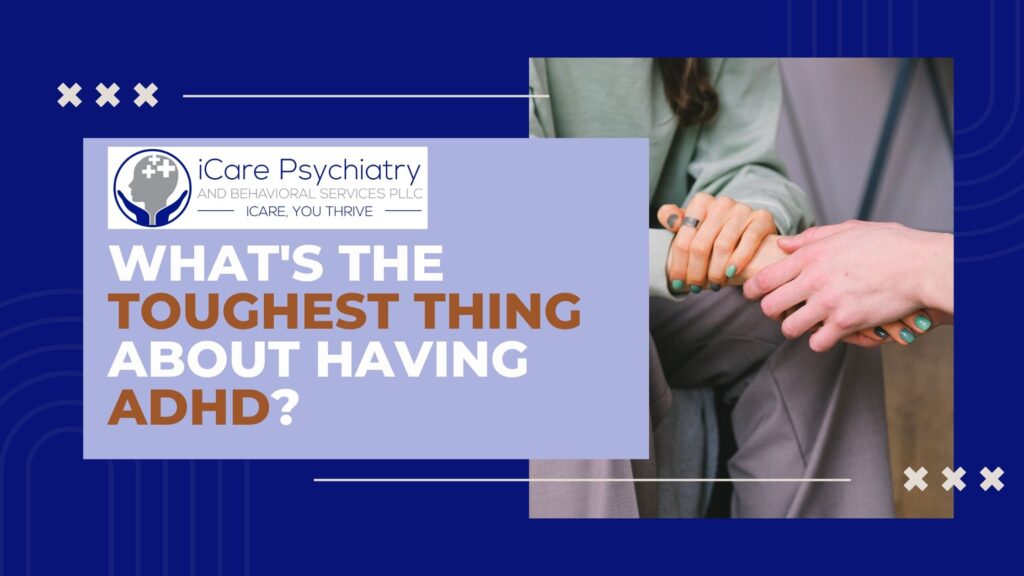The toughest aspect of having ADHD (Attention Deficit Hyperactivity Disorder) lies in its impact on executive function, which governs planning, impulse control, attention, and task completion.
Individuals often struggle with focusing on tasks, organizing tasks, and following through to completion. This can lead to underperformance in academic, work, and social settings, even if the individual is highly intelligent and capable. The constant battle with distractions makes routine tasks more time-consuming and stressful.
Moreover, ADHD can affect emotional regulation, leading to quick temper flares, frustration, and feelings of overwhelm.
Social relationships can suffer as a result of misunderstood actions and communication styles.
The inconsistency in performance – being able to accomplish tasks effortlessly and struggling immensely at other times – can be confusing and demoralizing, leading to a cycle of procrastination and anxiety.
Managing ADHD is not merely about willpower; it requires a comprehensive approach, including therapy, lifestyle adjustments, and sometimes medication.
The invisibility of the condition adds another layer of challenge, as it can lead to misunderstanding and judgment from others unaware of the internal struggle faced by those with ADHD.

